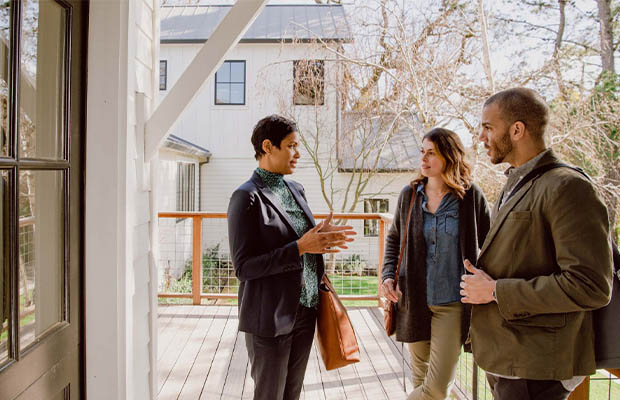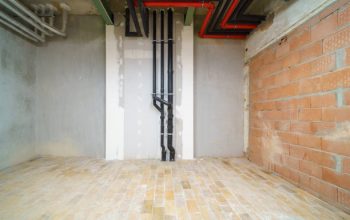There are many reasons you might be looking to buy a home outside of your state, including the desire to be nearer to family or a new job, the desire to make an investment in a second home, or the desire to benefit from a remote work environment. But how to buy a house out of state?
Always obtain pre-approval before beginning your home search. A mortgage pre-approval will help you focus your budget, check your credit score, and show buyers that you are serious when it comes time to make an offer.
We’ll go over how to easily purchase a home out of state in this article.
Table of Contents
How To Buy A House Out Of State?
Anyone considering purchasing a home in a different state will be in good shape, as previously mentioned, as it is entirely possible to purchase a home in a different state or region of the country at any time. You’ll need to follow the below tips and instructions in order to achieve this, though.
Keep in mind that depending on your circumstances, the process will resemble each prospective home buyer slightly differently. However, as a general rule, these recommendations will help you in your quest to purchase a single-family home, multifamily building, apartment, condo, or other new (and far-flung) real estate holding.
1. Create A Plan
Making a financial and strategic game plan that best meets your needs should be your first move when purchasing a home outside of your state. Similarly, you should think about what you ought to do with your current residence. Would you consider leasing it? Should you keep it or sell it? That necessitates asking yourself questions like: Would my family and I prefer to live near the mountains or the coast? What regions, features, and pastimes are most important to us; for instance, do we want to live somewhere with excellent schools, beautiful scenery, or hiking trails? You should also think about the size of the home you can afford, the size of the mortgage payment you can afford each month, and how your income may change in the future and how that may affect these calculations. Obviously, there are a lot of financial factors to think about as well, such as saving for a down payment, buying homeowners insurance, deciding whether you’re willing to pay HOA fees, etc.
2. Research The Area And Cost Of Living
Investigating various regions of the country and contrasting costs of living will be one of your next steps. You should research what it costs for food, transportation, utilities, property taxes, healthcare, and other typical expenses in addition to getting a better understanding of home prices, interest rates, and monthly payments for any particular area. Naturally, popular regions of the nation like large cities (hello, New York and Los Angeles!) tend to be more expensive to live in than rural locales. In the same way, market prices are frequently higher for relaxing getaways with views of the sea or convenient access to parks and large open spaces. In other words, don’t just do research to understand what the potential baseline costs for owning property there might be when deciding where to live. Before making any decisions, be sure to keep in mind how your other daily and monthly expenses might increase or decrease.
3. Find A Real Estate Agent
Making contact with a local real estate agent or REALTOR in the city you’re interested in is one of the most crucial steps when looking for a home in another state. A real estate expert who is on-site and knowledgeable about the area will, after all, be the person most likely to know the area, its features, and emerging local trends. This is true even among locals who did not grow up there. To get a sense of who has a strong and reliable presence in the area, start by asking family and friends for recommendations. You can also check local listing websites and browse online reviews. But keep in mind: To find the person who complements your personality and working style the best, you should speak with at least three or four professionals. Whoever you decide to work with will be a valuable asset and your on-the-ground eyes, ears, and boots in the event that you require remote assistance or remote viewing.

4. Get Your Mortgage Preapproved
Get pre-approved for a mortgage before you start looking for a home to demonstrate your seriousness and credibility to potential sellers. To get a better idea of how high of a mortgage, and mortgage payment, you can comfortably afford, you’ll also want to speak with your lender and consult your budget calculations. In order to compare rates, you should conduct research on various mortgage lenders in your new city. Since no two mortgage lenders offer the same terms and conditions, it is a good idea to compare various mortgage types and offers.
5. Ask Your Agent For Virtual Tours
Ask a trustworthy agent to assist you in finding and taking virtual tours of various housing options once you’ve determined which agent’s working style best complements your own. By speaking with brokers, establishing connections with other agents, and browsing online listings, these real estate experts can support you in your search for properties. They can also assist you in getting a firsthand look at properties, whether that entails using virtual tour options for the property that are already available online or them visiting a home in person to record or take pictures. Fortunately, many smartphones today have real-time videoconferencing capabilities, so your REALTOR® can frequently call you and provide you with an instant 3D view.
6. Visit The City And Potential Homes
In order to get a better sense of any property you’re thinking about purchasing as well as the surrounding area, there is, of course, no substitute for a real-world, on-site visit. On the one hand, this might involve taking a drive by and taking a close look at various neighborhoods and potential houses that you’ve seen on virtual tours. On the other hand, it might entail passing through various parts of the city at various hours of the day or night to get a better idea of the traffic patterns, dining, and entertainment options, as well as how cozy or walkable a particular area of the city feels. To get a sense of how conveniently located certain locations are, make sure to map out and keep a close eye out for places like grocery stores, pharmacies, shopping malls, and other places you might frequently visit.
7. Make An Offer
Make an offer on the house once you’ve decided which house you want to buy. The time left until closing and any terms or conditions that your offer will be made under should also be taken into account in addition to the amount of money you are willing to spend. Keep in mind that regional variations may exist in the traditions surrounding offers. You might be able to work in inspection clauses and contingencies, for instance, in regions where properties come on and off the market more slowly. You might want to rethink some of them in regions of the country where the real estate market is booming, though. Once more, your real estate agent can give you more insight into local customs.
8. Get A Home Inspection And Appraisal
Getting a home inspection is essential because it can reveal any flaws or issues with the property that are present now or in the future and which you might be able to convince the seller to fix. To help your financial lender feel confident that they’re not lending more than the property is worth, you’ll also need to have a home appraisal performed, which offers a snapshot of the property’s value. Prior to closing on the house, a home appraisal and inspection should be performed.
9. Close On Your New Home
You’ll also decide on a closing date as part of your home offer, when ownership of the house will change hands from the seller to the buyer. To make sure that all statutory and contractual requirements are satisfied before closing, you’ll need to work with a title company and your mortgage lender. Working with your REALTOR®, mortgage broker, title company, and any other parties involved in the transaction is essential during the time from the acceptance of an offer on a home until closing to ensure that all open questions are resolved, documents are filed, and legal requirements are satisfied. On the plus side, some states allow you to attend your closing remotely and don’t even require you to be present in person to sign documents the day of closing.
10. Make Final Moving Preparations
It’s time to complete the move-related preparations after closing. These arrangements might include:
- Changing your address and forwarding your mail
- Contacting local utility companies to set up or transfer service
- Changing your driver’s license and vehicle registration
- Registering to vote in your new state
- Updating your health insurance provider and finding local healthcare practitioners and a pharmacy
Get Pre-approved Early To Set Your Budget
After everything is said and done, you’ll be in your new home, which is better suited to your family, career, health, and financial situation. Here are some suggestions for making the process of buying a home enjoyable.
To learn as much as you can, take a look at our home buyer education course.
Contact Homebuyer right away if you need assistance with buying a home outside of your state. Every step of the way, we’re here to assist.
Happy homebuying.
You May Also Like: How To Buy An Apartment?



